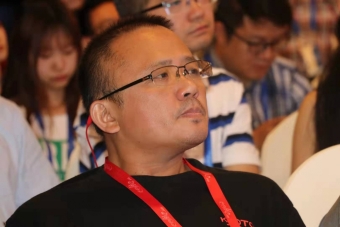
Date:
Location:
Title:
abstract
Quasi-particles and collective modes are two fundamental aspects that characterize a quantum matter in addition to its single-particle features. For example, the low energy physics for Fermi liquid phase in He-III was featured not only by Fermionic quasi-particles near the chemical potential, but also by fruitful collective modes in the long wave length limit, including several different sound waves that can propagate through it under different circumstances. In the present talk, I will introduce three basic collective modes in Weyl or Dirac semimetals, which characterize the topological semimetals in addition to their single particle spectrum. They are chiral polariton, chiral plasmon and chiral zero sound. The chiral polariton is the mixed mode between pseudo scalar phonon and light; chiral plasmon is the unique type of charge oscillation under the magnetic field; and chiral zero sound is the acoustic mode formed by the chiral charge oscillation among different valleys in Weyl semimetals. All these unique collective modes can only exist under external magnetic field and stabilized by the chiral magnetic effect, which is the most fundamental electric-magnetic response characterizing the Weyl semimetals.
bio
Professor Xi Dai obtained his Bachelor and Master’s degree (1993 &1996) from Zhejiang University and PhD (1999) from the Institute of Theoretical Physics, CAS in China. After graduation, he did postdoctoral research in HKUST, Boston college and Rutgers University. From 2004-2007, he worked at the University of Hong Kong as a research assistant professor. In 2007, he joined the Institute of Physics, CAS as a professor in the theory division. In September 2017, he joined HKUST as a professor in the Department of Physics. Professor Dai received several important awards during the past ten years including the OCPA “Achievements in Asia Award” (2011), the CAS prize for outstanding scientific achievements, the KC Chou foundation “Fundamental Physics Prize” (2014), and the James C. McGroddy Prize for New Materials from APS (2019). He is a Fellow of the American Physical Society (APS).
Hosted by Susanne Stemmer. Download event flyer.



